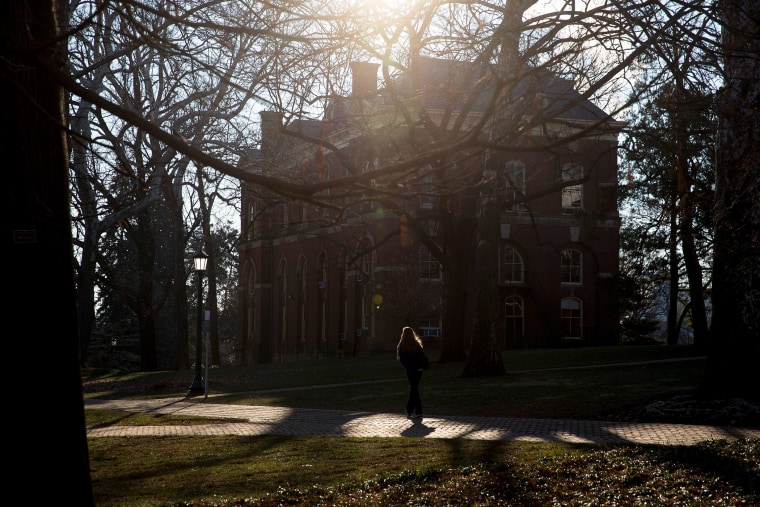Universities and colleges undercount sexual assaults on campus, a new study concluded this week.
The researcher examined the numbers universities reported before, during, and after federal audits of their compliance with the Clery Act, a law that requires universities to make public the number of sexual assaults reported on campus.
While under federal examination, schools reported 44% higher assault numbers than they did in previous years. Once federal scrutiny was lifted, universities’ sexual assault figures dropped back to pre-audit levels.
RELATED: University of Virginia president addresses sexual assault
"When it comes to sexual assault and rape, the norm for universities and colleges is to downplay the situation and the numbers," researcher Corey Rayburn Yung, a law professor at the University of Kansas, said in a release. The study examined 31 universities that were audited between 2001 and 2012 — that includes many prominent schools like the University of Virginia, Yale University, and seven of California’s universities. The study doesn’t reveal data for individual universities, and Yung notes that not all of the schools exhibited the trend of undercounting. However, several of the schools studied were fined for not properly reporting sexual assaults. Yale University, for instance, was fined $165,000 for not reporting four violent sexual assaults.
Yung’s research confirms what advocates and lawmakers have been saying for years: Schools are downplaying the sex crimes their students have faced.
Last summer, a bipartisan group of lawmakers including Democratic Sens. Claire McCaskill of Missouri and Kirsten Gillibrand of New York, introduced a bill that would change the way schools report sexual assault and increase the penalties for noncompliance to $150,000.
Under the current Clery Act, schools can be fined $35,000 for each reporting error, but Yung said his analysis showed that the penalty wasn’t an effective deterrent.
"Even schools that were fined didn't have a long-term compliance effect," he said. "They seemed to behave the same as schools that weren't fined or those that didn't have any findings of wrongdoing."
The study was printed in the American Psychological Association’s journal, Psychology, Public Policy, and Law, and used federal data and methods for the analysis.
